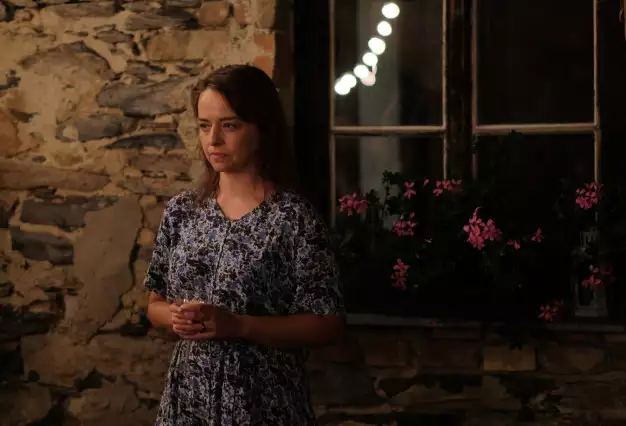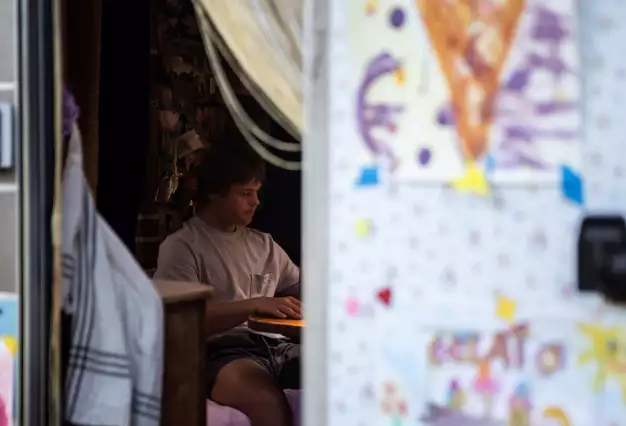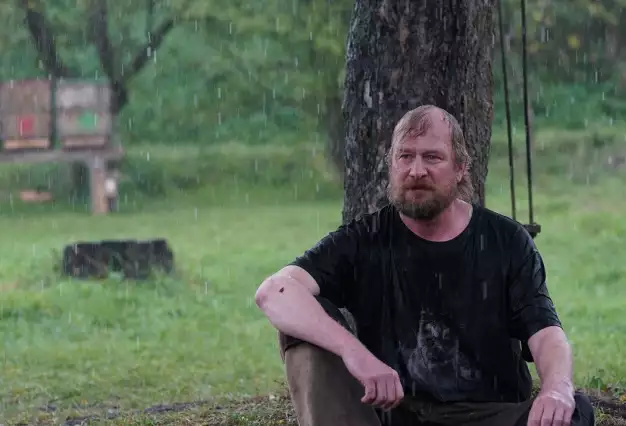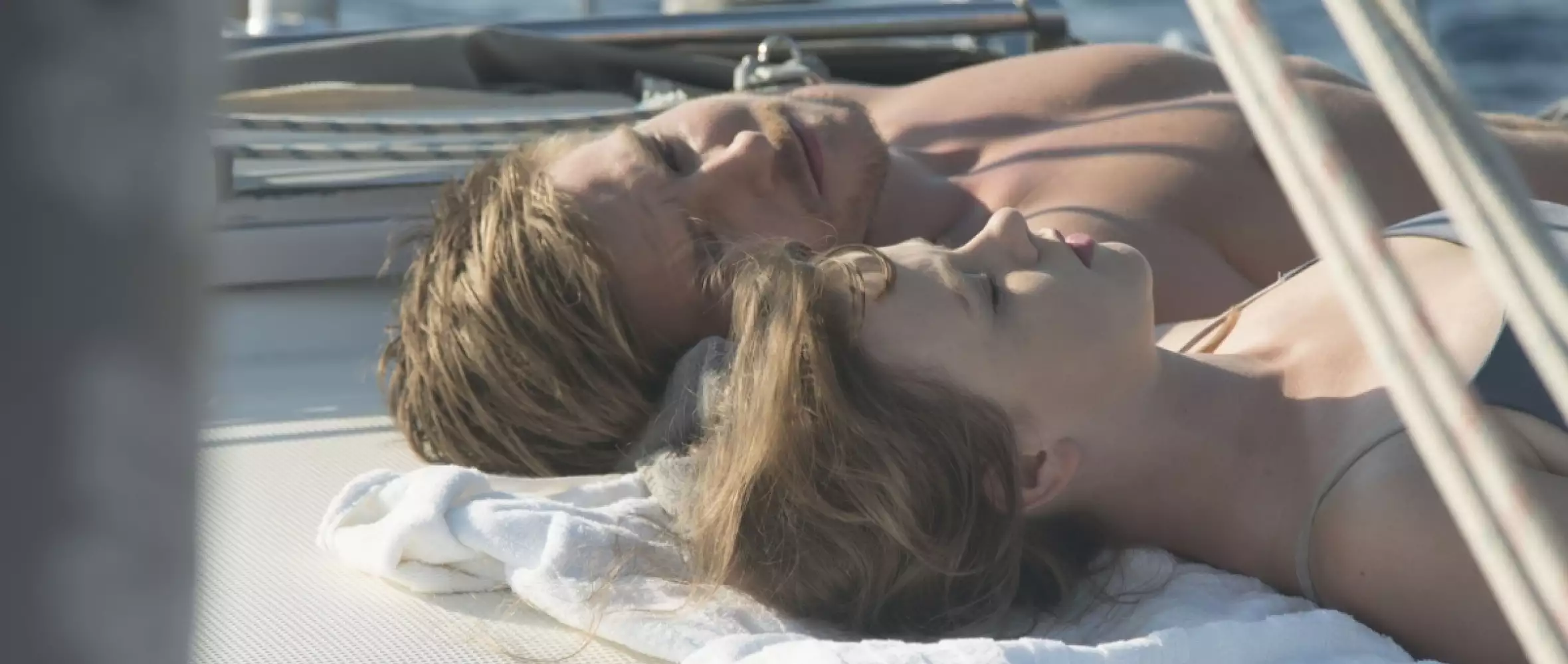
21 September 2017
Limitations Will Set You Free!
Limitations Will Set You Free!

Independent independent! That’s how writer-director Sofie Šustková and producer Lucie Gorovoj describe their debut. They went out on a limb and shot their first feature on a boat in Greece without big financial support from the state.
Article by Louise H. Johansen for Czech Film Magazine / Fall 2017
Why even try? “The subject was urgent and the story needed to be told,” says Sofie Šustková. Her feature debut, Into the Wind, combines the freedom-seeking of a road movie, the claustrophobia of a chamber piece, and a sailboat ménage à trois. but what does it really take to make your first feature film on the cheap? To find out, we caught up with the filmmakers, who are currently in post-production.
Urgency
The film is set in Greece, with a plot that revolves around a brother and sister, Matyáš (24) and Natálie (22), who have left behind their obligations in Prague to live a carefree life at sea. They work as caretakers on a boat where they also act as captains on tourist trips. Then, one day, along comes Honza (26), an up-and-coming documentary filmmaker and the son of the boat’s Czech owner. Life is sweet, soaking in the sunshine and fresh air, and the chemistry onboard is perfect. But eventually, their worlds and values collide, since Honza is there mainly to document the refugee crisis.
“Things are really changing all over Europe right now, and we felt like it was now or never with this movie, so we decided to go for it,” says Sofie, explaining why they decided to make the movie at this particular moment and in Greece specifically.

Another reason she chose a boat as the setting for her movie is because it’s a very familiar environment for her. “I’m a passionate sailor, my father’s a captain, and for me, being on a boat is the most intimate freedom there is. She continues, “I was born after the Velvet Revolution, so freedom is one of my main topics. Generation me me me, that’s us. The main thing about freedom for us is our ego — what we do with our freedom. For a long time now, I’ve considered this a problem. For me, freedom is something wider.”
Honza’s search for a reality bigger than himself opens Natálie’s eyes, causing her to pull away from her escapist brother and their intimate relationship, which resembles that of two lovers.
Authenticity: Make it Real
When we meet with the filmmakers, they are about to start post-production and seem to have shaken off the worst of their experiences from the month they spent shooting in Greece. But it wasn’t easy. Apart from lacking a big budget, shooting on location has its advantages, the director adds. “Ultimately, I think when you watch the film you can see it was real. My hope is that gives it that extra-special ‘something'.”
As director, Sofie Šustková emphasizes that it had to feel real to the actors and everyone onboard in order to keep their spirits up. “We made nine versions of the script, and the last one was with the actors. We did some rehearsals and they started to make stuff up for their characters, what they believed about them."
“We didn’t have anyone to show us the way. We had to figure it all ourselves.”
The crew mainly consisted of Czech professionals. Cinematographer Jan Pivoňka was a friend of Sofie from film school days. And besides that, it was staff from the production company they allied with early on to make the shoot possible without state subsidies. Plus family! Producer Lucie Gorovoj, Sofie’s sister, brought in some start-up capital, and they even turned to close family’s friends in Greece who owned a local hotel that served as their base. That way they didn’t have to sleep on the boats as they had planned initially.
Lower Than Low-budget
“In the Czech Republic, you need to throw yourself at the mercy of the state and just trust you’ll get support. Either that or you need to find your own sources of money,” Sofie explains. She says they did initially apply to the Czech Film Fund, but that the early script had issues. Apart from the producer’s own savings, the sisters managed to team up with the commercial Czech production company Cartel, Michal Nýdrle, the second producer, as well as receiving in-kind support from post-production facilities who came in as co-producers based on the fact that they all shared a passion for sailing.
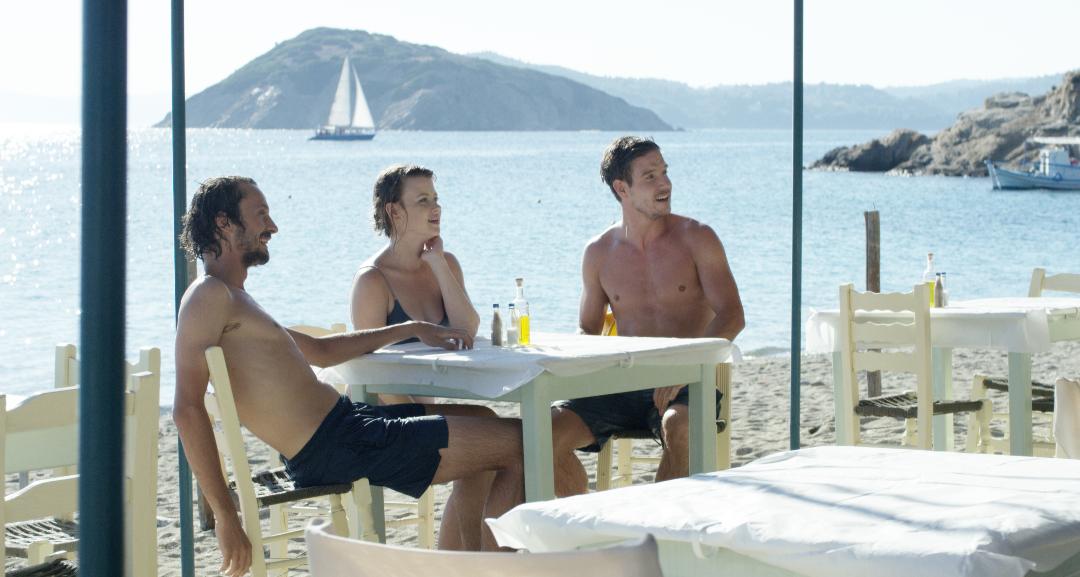
It’s hard to know what the actual budget was, says Sofie. “In real numbers, it’s lower than the lowest low-budget in the Czech Republic.” They also launched an innovative web platform to promote the project at an early stage.
Limitation Is Key
Working outside the system doesn’t mean you have to go it all on your own, Sofie says. “I consulted with everyone around me, right from the start, since I was really curious to know their ideas." Czech dramaturgist Jiří blažek consulted on the script, and Ivo Trajkov, the Macedonian director-producer-screenwriter and head of FAMU’s editing department, was invited into the editing room to help with the background story.
“I’m really happy we were foolish and young. I learned a lot from the process. We found out that even with nothing you can still make something, and that’s amazing."


